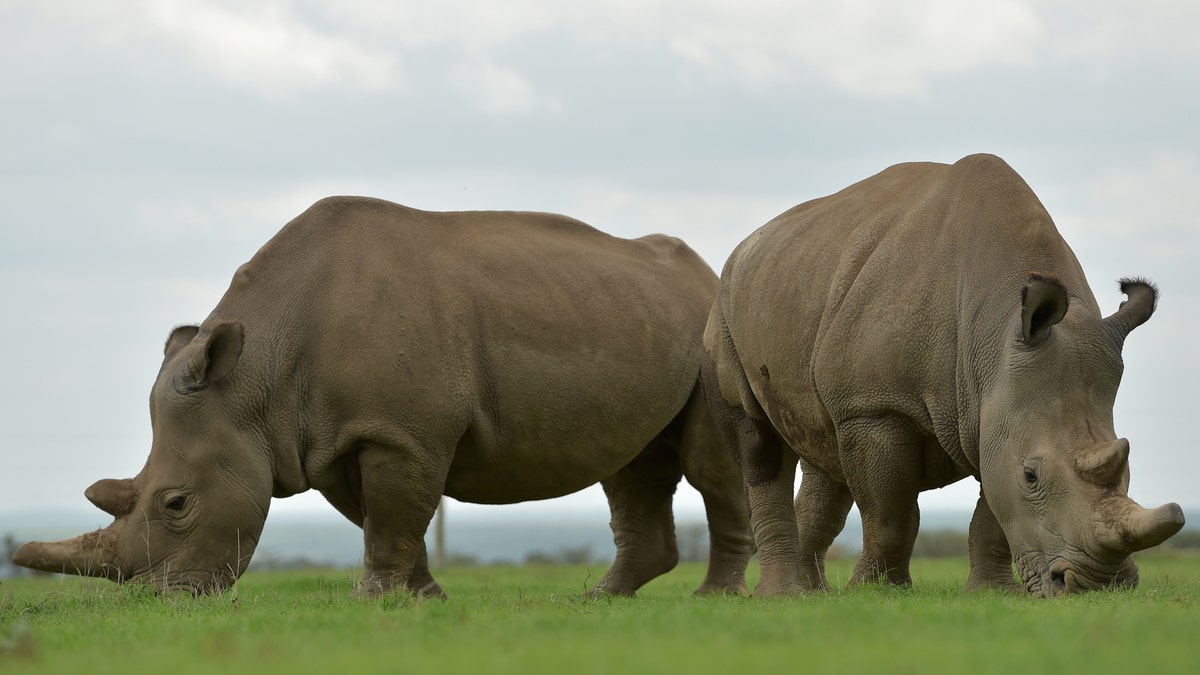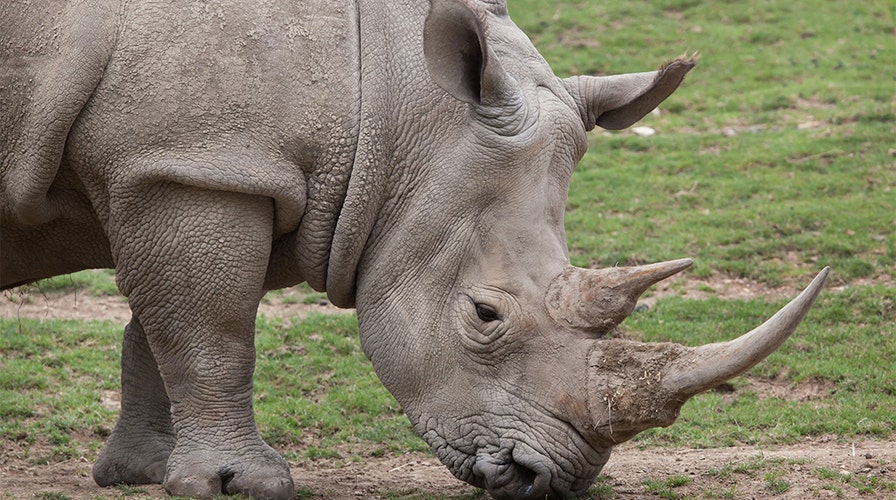Fox News Flash top headlines for July 12
Fox News Flash top headlines for July 12 are here. Check out what's clicking on Foxnews.com
Endangered rhino populations in Tanzania rose by 1,000% after officials said the country’s government quashed organized poaching gangs.
Elephant populations have additionally risen by nearly half in five years, according to the president's office earlier this week, citing a crackdown on illegal ivory hunters.
Tanzania had only 15 rhinos four years ago and was described as “ground zero” of the poaching crisis, but a recent statement said the figure was now at 167.
British wildlife experts are skeptical, however, saying the spike in rhino numbers was likely due to imports rather than breeding.
CHINA SEIZES 2,700 IVORY TUSKS IN MASSIVE SMUGGLING CASE
Mark Jones, head of policy at wildlife charity the Born Free Foundation, said both rhinos and elephants breed slowly – their recent population increase must be attributed to other factors.
“This sounds like very good news but we should view these figures with caution until there’s independent verification,” he said. “There’s no way [the population growth] has occurred through breeding and protection alone.”

Tanzania had only 15 rhinos four years ago and was described as “ground zero” of the poaching crisis, but a recent statement said the figure was now at 167. (AFP/Getty Images)
Jones, who believes the rhinos have been imported, stated: “They mature late, have long gestation periods and don’t produce many young. Both species take a long time biologically to reproduce.”
“Elephants are intelligent – they move across national borders to where they are safer, so if there’s been a clampdown on poaching in Tanzania, it may be that some have moved in,” he added.
RHINO POACHING SUSPECT KILLED BY ELEPHANT, EATEN BY LIONS
Tanzania’s President John Magufuli vigorously tackled wildlife crime when he took office in 2015, pressing security forces to round up all those involved in animal trafficking. Within months of his term, four Chinese men were arrested for smuggling rhino horns along the Tanzania-Malawi border, and were sentenced to 20 years.
A prominent Chinese businesswoman, dubbed “the ivory queen”, was also imprisoned for 15 years in Tanzania for smuggling the tusks of more than 350 elephants to Asia.
A 2015 census showed elephant numbers in Tanzania dove by 60% between 2009 and 2014, dropping from 110,000 to just over 43,000. Officials subsequently launched a special task force in 2016 to fight wildlife poaching.
“As a result of the work of [the task force]… elephant populations have increased from 43,330 in 2014 to over 60,000 presently,” officials said.
Demand for ivory primarily stems from China and Vietnam, where the product is turned into jewelry and ornaments. Researchers even found that some buyers believed the tusks and horns grew back on the animals after reaped.
CLICK HERE TO GET THE FOX NEWS APP
Asian cultures value the rhino horn for its traditional medicinal qualities, even though scientific research proves it does not possess pharmaceutic benefits.
Fox News' Morgan Cheung contributed to this report.

